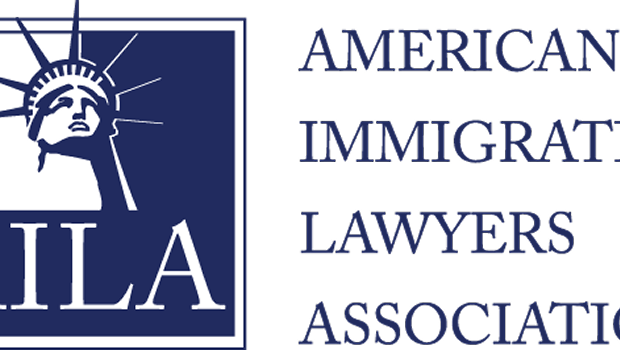Introduction:
The United States immigration system serves as a gateway for individuals from around the world seeking better opportunities and a brighter future. However, there are instances when individuals may face the daunting prospect of being subjected to a permanent bar, rendering them ineligible to enter or reside in the United States. Despite the seriousness of the permanent bar, there is a provision in the law that allows for the possibility of filing a waiver. Here, we explore the process and considerations involved in filing a waiver of the immigration permanent bar, drawing upon relevant Supreme Court decisions and provisions of the Immigration and Nationality Act (INA).
I. Understanding the Permanent Bar:
The permanent bar is a provision within the U.S. immigration law that imposes a lifetime ban on individuals who have accrued unlawful presence in the United States for certain durations. According to the INA Section 212(a)(9)(C)(i)(I), individuals who have been unlawfully present in the U.S. for more than one year, and then depart, are barred from re-entry for a period of ten years. If an individual re-enters or attempts to re-enter the United States without authorization during this ten-year period (Entry without inspection - EWI), they trigger the permanent bar, resulting in a "lifetime" ban. Although stated as a lifetime ban, the US Government construes the lifetime ban as requiring 10 years outside the USA for each EWI entry during the relevant period. If you think you fall into this category, please call me, there are many pathways beyond the waiver that can be used.
II. Establishing Eligibility for a Waiver:
To file for a waiver of the permanent bar, it is crucial to meet specific eligibility criteria. According to the INA Section 212(a)(9)(C)(ii)(I), individuals can apply for a waiver if they can demonstrate extreme hardship to a qualifying relative who is a U.S. citizen or lawful permanent resident spouse or parent. The concept of extreme hardship has been further clarified by the Supreme Court in the case of INS v. Wang, 450 U.S. 139 (1981), where the Court held that extreme hardship must be "substantially different from that which would be suffered by any other alien who is denied admission."
III. Preparing the Waiver Application:
The waiver application process involves compiling a comprehensive package to present to the U.S. Citizenship and Immigration Services (USCIS). The package should include the Form I-601, Application for Waiver of Grounds of Inadmissibility, accompanied by supporting documentation. According to INA Section 212(i), the applicant must establish extreme hardship to a qualifying relative through credible evidence. This can include personal statements, affidavits, medical records, psychological evaluations, financial documentation, and other relevant evidence.
One major concern that every filing party should have is whether this waiver will waive all issues relating to their immigraiton history. Without a comprehensive immigration and criminal background check, having a waiver for one issue will not help the immigrant as they will have other outstanding issues that the USCIS, US CBP, and other government entities will have with their immgiration. As such, filing a case with the help of a qualified immigraiton attorney is a must.
IV. Demonstrating Extreme Hardship:
In the waiver application, it is vital to articulate and substantiate the hardships that the qualifying relative would face. The Supreme Court, in the case of INS v. Jong Ha Wang, 450 U.S. 139 (1981), emphasized that the extreme hardship standard requires evidence that goes beyond mere emotional or economic difficulties. Hardships can include emotional, financial, medical, educational, or any other significant factors that establish the dire consequences the qualifying relative would endure without the applicant's presence.
V. Legal Assistance and Professional Advice:
Seeking the guidance of an experienced immigration attorney or an accredited representative is crucial when navigating the complexities of the waiver process. Supreme Court decisions, such as INS v. Yueh-Shaio Yang, 519 U.S. 26 (1996), have emphasized the importance of competent legal representation to ensure a fair and accurate evaluation of the waiver application. Attorneys and accredited representatives possess the knowledge and expertise to guide applicants through the process, ensuring that all necessary documents are properly prepared and presented.
VI. Review and Decision:
Once the waiver application is submitted to USCIS, it undergoes a thorough review process. USCIS evaluates the evidence, assesses the claimed hardships, and makes a determination based on the merits of the case. The processing time for waiver applications can vary, and there are no specific deadlines set forth in the INA or Supreme Court decisions. USCIS will notify the applicant of their decision, either approving or denying the waiver application.
Conclusion:
Filing a waiver of the permanent bar in immigration is a complex and rigorous process, requiring careful preparation and substantial evidence to establish extreme hardship to a qualifying relative. Relying on provisions of the Immigration and Nationality Act and relevant Supreme Court decisions, individuals facing the permanent bar can present a strong case for a waiver. With perseverance, proper planning, and the assistance of experienced professionals, the chances of a favorable outcome are maximized, potentially opening the doors to a renewed opportunity for a brighter future in the United States.

